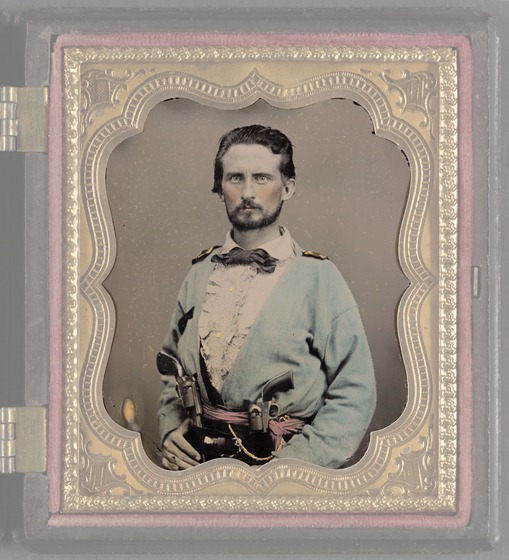October 8. [Chattanooga] —The weather still continues warm.
More bad news. On the 20th ult. General Price had a battle in Iuka, Miss., and was defeated. It is said his men fought valiantly, but were overpowered by numbers.
On the 3d and 4th inst., another was fought at Corinth—said to be the most desperate of the war. General Van Dorn was in command. After a severe struggle for the place, and the loss of many men, we had to retire, as the place was so strongly fortified. I know what General Price’s men will say; that, had he been in command,
..
“Another sight had seen that morn—
From Fate’s dark book a leaf been torn.”
..
Missouri, Texas, Arkansas, and Louisiana, no doubt, will be the losers in this sad affair, as those states were well represented in that army. I do sincerely hope that the wounded from it are well cared for. Mississippi is destined to be sacred ground, bathed with the blood of martyrs.
It is raining very hard. We still have our trials. Lately I have had a little kitchen to myself; and as every chimney seems to have been planned by the same architect, mine has the failing of others— is smoky.
Mrs. May is sick; and it is not much to be wondered at, as she has been so sorely tried in many ways. She is going home. I regret her leaving, as she has been so faithful to the sick. Mrs. W. is also complaining.
While in the midst of my troubles this morning, I received a letter from one of my Corinth patients, who had been badly wounded there, thanking me for what little attention I had paid him. He seemed so grateful that I felt I could bear more trials than I have to receive such gratitude in return. He is an officer in a Tennessee regiment, and is very hopeful about our cause; thinks that Buell is “whipped.”











